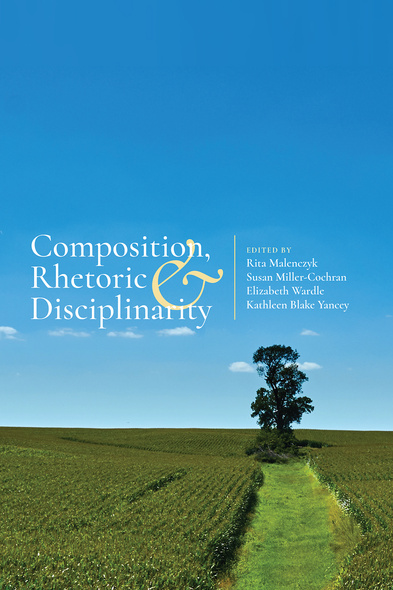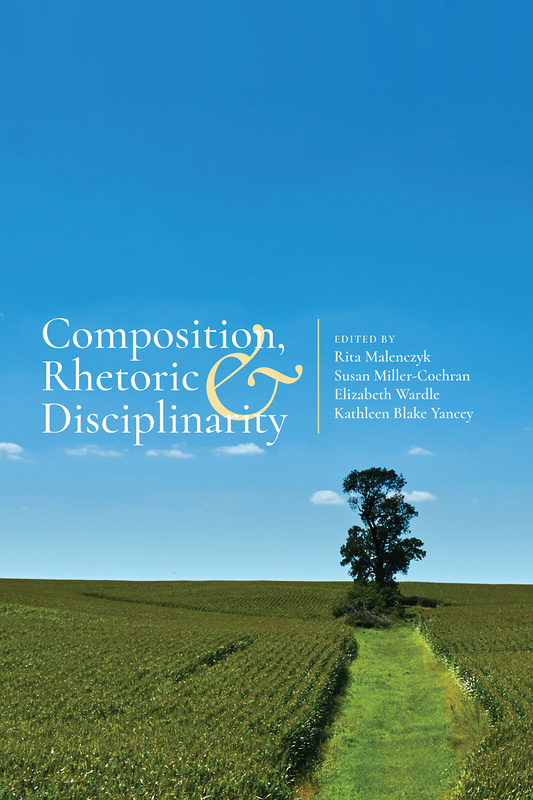
Composition, Rhetoric, and Disciplinarity
Edited by four nationally recognized leaders of composition scholarship, Composition, Rhetoric, and Disciplinarity asks a fundamental question: can Composition and Rhetoric, as a discipline, continue its historical commitment to pedagogy without sacrificing equal attention to other areas, such as research and theory? In response, contributors to the volume address disagreements about what it means to be called a discipline rather than a profession or a field; elucidate tensions over the defined breadth of Composition and Rhetoric; and consider the roles of research and responsibility as Composition and Rhetoric shifts from field to discipline.
Outlining a field with a complex and unusual formation story, Composition, Rhetoric, and Disciplinarity employs several lenses for understanding disciplinarity—theory, history, labor, and pedagogy—and for teasing out the implications of disciplinarity for students, faculty, institutions, and Composition and Rhetoric itself. Collectively, the chapters speak to the intellectual and embodied history leading to this point; to questions about how disciplinarity is, and might be, understood, especially with regard to Composition and Rhetoric; to the curricular, conceptual, labor, and other sites of tension inherent in thinking about Composition and Rhetoric as a discipline; and to the implications of Composition and Rhetoric’s disciplinarity for the future.
Contributors: Linda Adler-Kassner, Elizabeth H. Boquet, Christiane Donahue, Whitney Douglas, Doug Downs, Heidi Estrem, Kristine Hansen, Doug Hesse, Sandra Jamieson, Neal Lerner, Jennifer Helene Maher, Barry Maid, Jaime Armin Mejía, Carolyn R. Miller, Kelly Myers, Gwendolynne Reid, Liane Robertson, Rochelle Rodrigo, Dawn Shepherd, Kara Taczak
‘[A] timely book that offers a more sophisticated, thorough, and useful exploration of debates surrounding whether or not Writing Studies is (and should be) a discipline. . . . [A] major strength of the book is the care it takes in defining what a discipline is, and doing so through multiple frameworks in multiple chapters.’
—Dan Melzer, California State University, Sacramento
‘[A] strong, well-conceived collection. . . . I learned much from it.’
—Tony Scott, Syracuse University
‘All the essays in this wide-ranging book are worthwhile, but the concluding essay by all four editors is especially powerful. . . . Summing Up: Essential’
—CHOICE
‘Seldom does scholarship feel so hopeful.’
—Composition Studies
Rita Malenczyk is professor of English and director of the Writing Program and Writing Center at Eastern Connecticut State University. She is the editor of A Rhetoric for Writing Program Administrators, now in its second edition, and a past president of the Council of Writing Program Administrators.
Susan Miller-Cochran is professor of English and director of the Writing Program at the University of Arizona. She has served as a faculty member at Mesa Community College, director of First-Year Writing at North Carolina State University, and president of the Council of Writing Program Administrators.
Elizabeth Wardle is director of the Roger & Joyce Howe Center for Writing Excellence at Miami University and previously directed writing programs at the University of Dayton and the University of Central Florida. She coedited Naming What We Know and Writing about Writing, now in its third edition.
Kathleen Blake Yancey is Kellogg W. Hunt Professor of English and Distinguished Research Professor at Florida State University and past president/chair of NCTE, CCCC, and CWPA. The recipient of several awards, she has authored/edited many articles/book chapters and books, most recently A Rhetoric of Reflection and Assembling Composition.





